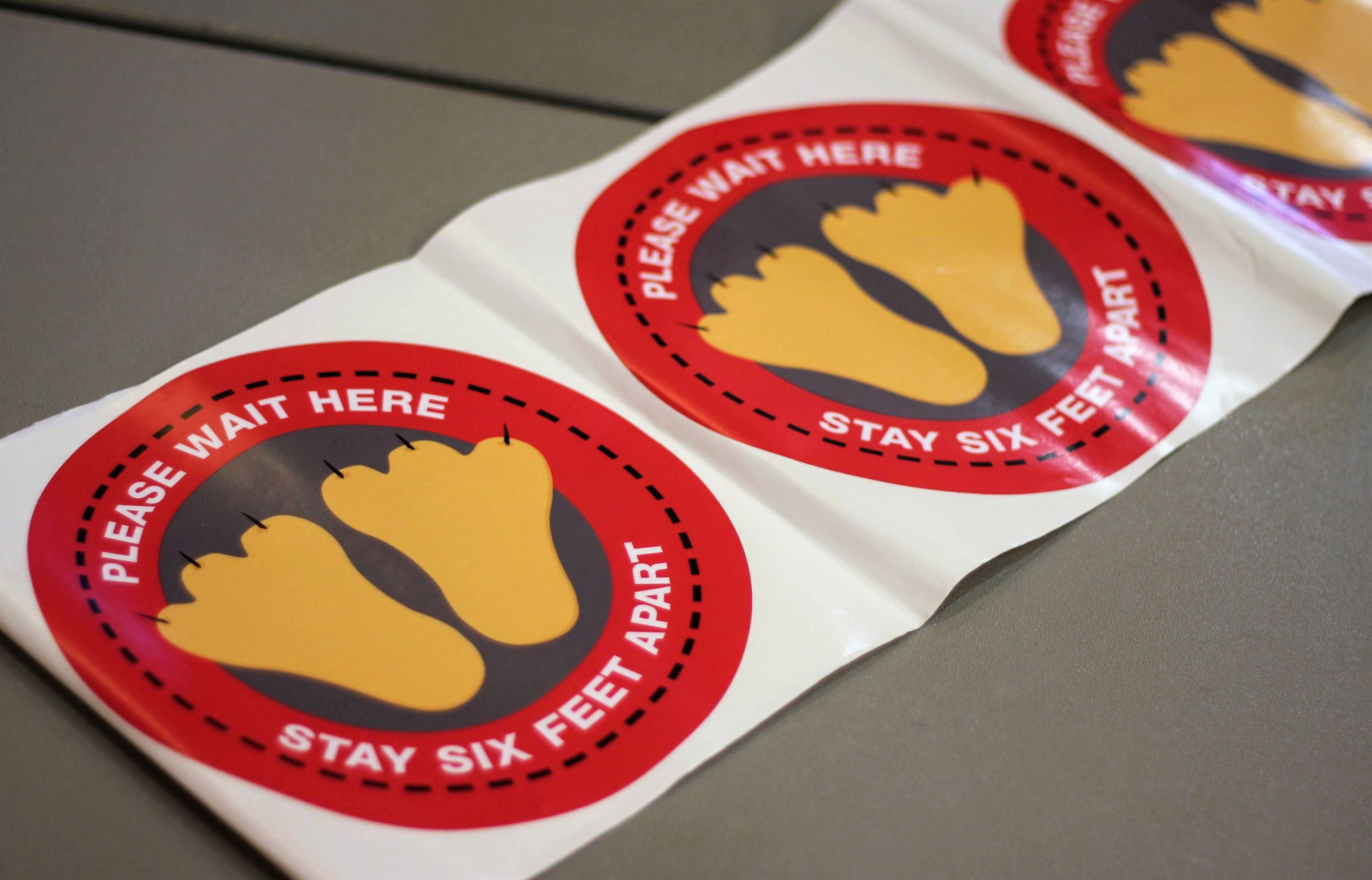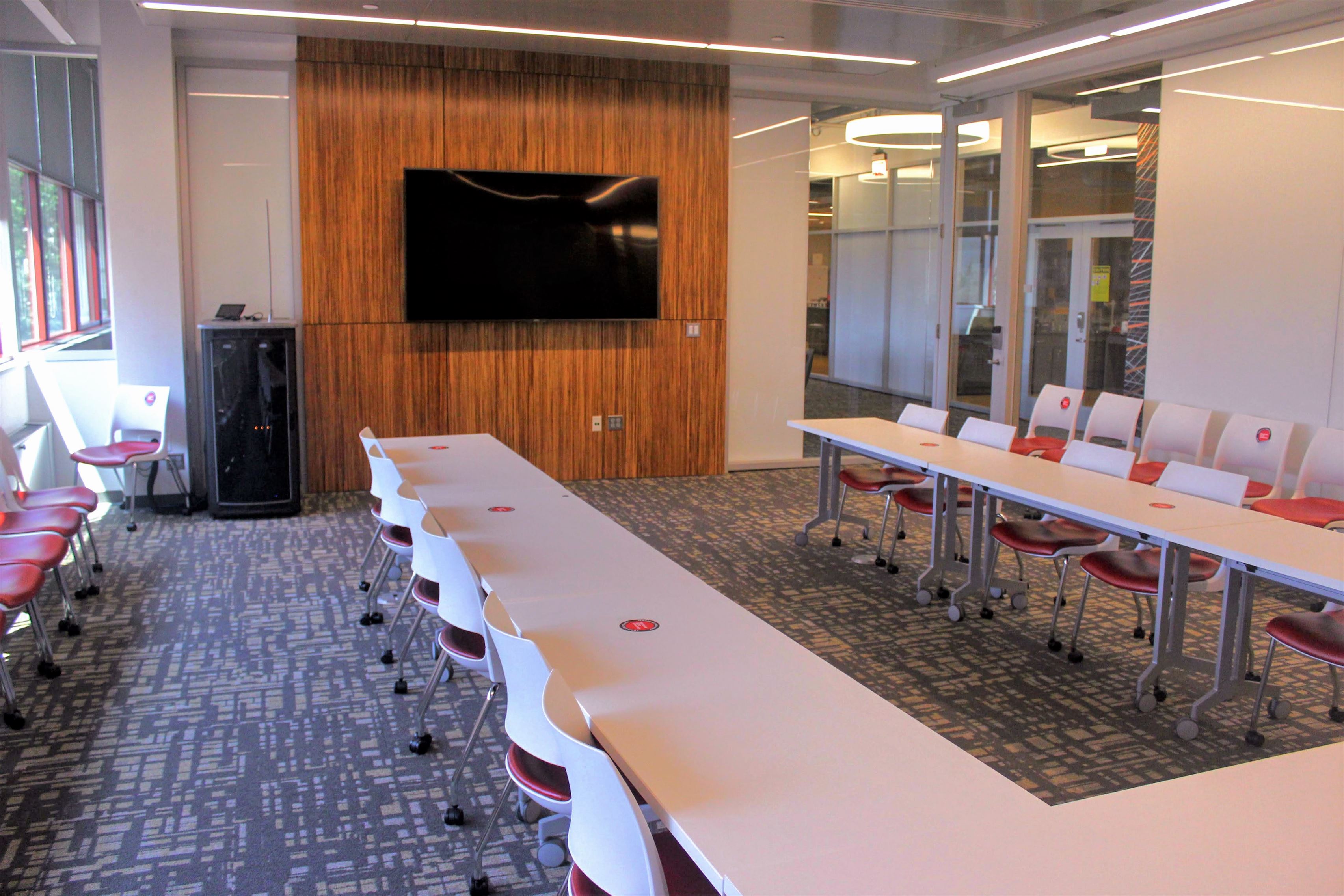The fall semester is officially starting up again, and more than half of Montclair State University’s students will not be returning in-person for their first day of class due to the ongoing new coronavirus (COVID-19) pandemic. Many of these students will be attending from their homes virtually, but Montclair State has ensured CDC-recommended guidelines are in place for social-distancing on campus.
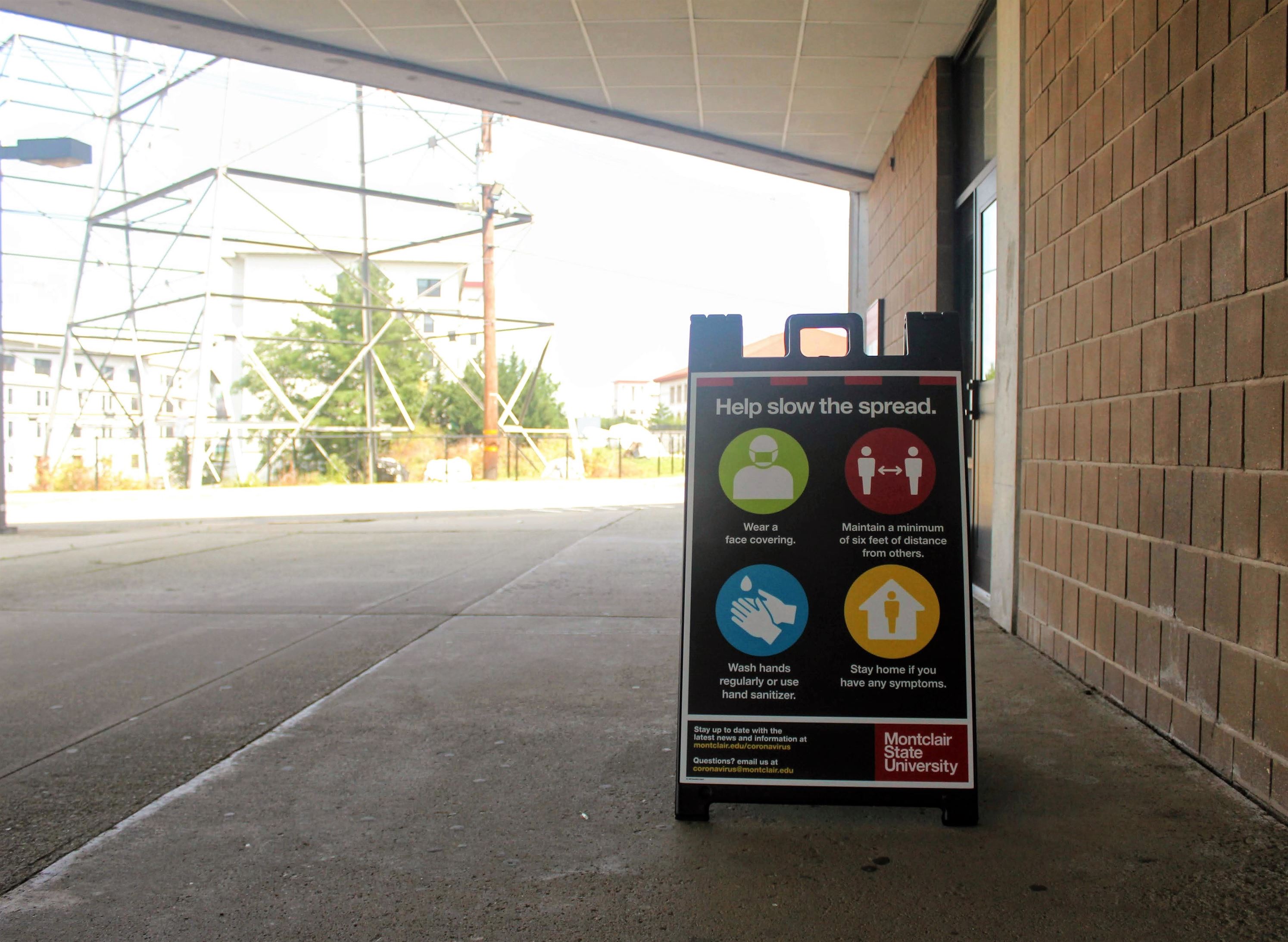
Informational signage has been placed in areas around campus with a high volume of foot traffic.
Ben Caplan | The Montclarion
With only 38% of classes having an in-person component, Montclair State has placed signage around campus to notify people of the health risks and social distancing procedures everyone must follow if they are on campus. In the classrooms, there are stickers placed on each table and desk directing people where to sit to ensure everyone stays at least six-feet apart.
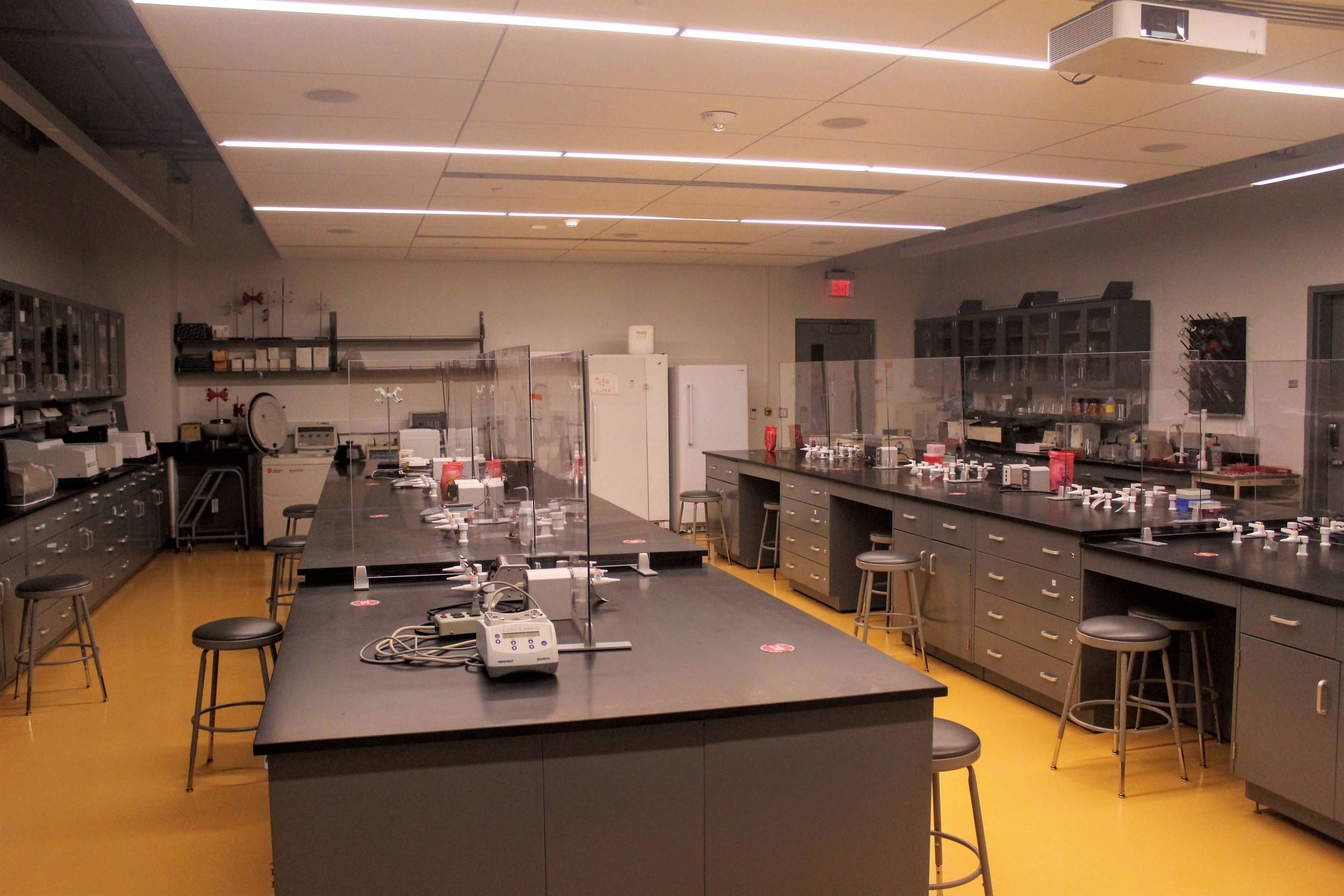
In Richardson Hall, science labs are set up with plexiglass dividers between lab stations. There are also stickers on the countertops, directing students where it is acceptable to sit.
Ben Caplan | The Montclarion
Plexiglass barriers have been installed in each classroom and lab. In addition to this, Montclair State has also installed over 200 hand sanitizing stations around campus to add to the sanitizing stations already in place.
For students and faculty traveling to campus for their in-person classes, everyone must fill out Hawk Check, a confidential form used for contact-tracing, six-to-12 hours before they step foot on campus. This form includes a health check to ensure that no one coming onto campus, or leaving their dorms, is showing symptoms of COVID-19.
Andrew Mees, the senior media relations specialist at Montclair State, explained why the Hawk Check form is important for everyone to fill out.
“Our public health experts are actively monitoring the reports that each campus member makes using the Hawk Check self-assessment tool,” Mees said. “People with symptoms or risk factors are instructed to stay home or to self-isolate in their residence hall room and seek care. Our experts also work closely with the local health department to follow up on any cases of COVID-19 and to conduct contract tracing. The university will not allow anyone with COVID-19 to come to campus until they have recovered and a healthcare professional has certified that they are fit to return.”
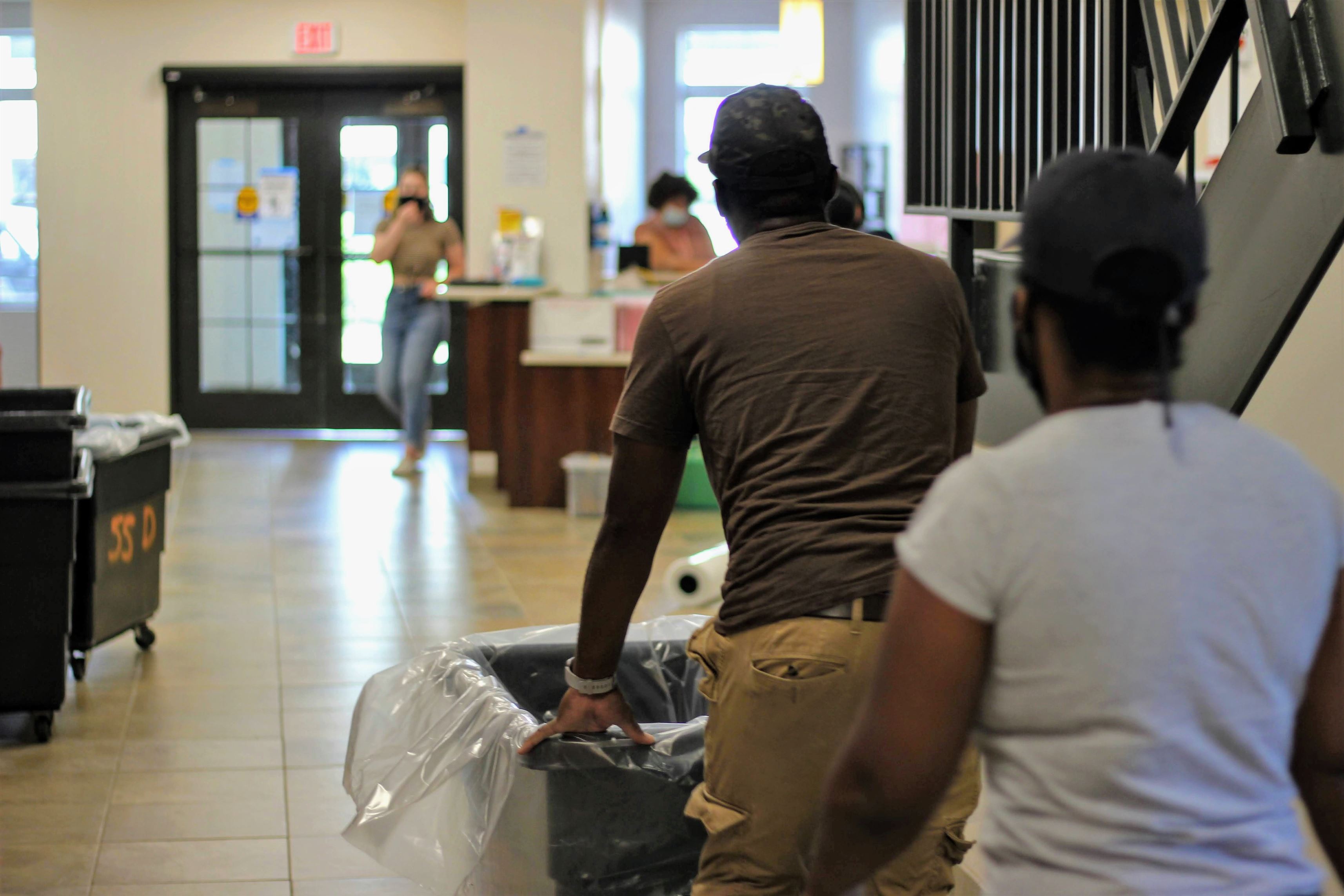
Sheets of plastic are being placed inside of carts to reduce the transmission of germs while students move into their dorm rooms.
Ben Caplan | The Montclarion
Residents returned to campus to move-in as early as Aug. 10. During previous semesters, over 6,000 students lived in the residence halls during the semesters in singles, doubles, triples and quads. To ensure social distancing is kept up, only around 3,200 students will be living on-campus in singles and doubles for this upcoming fall semester.
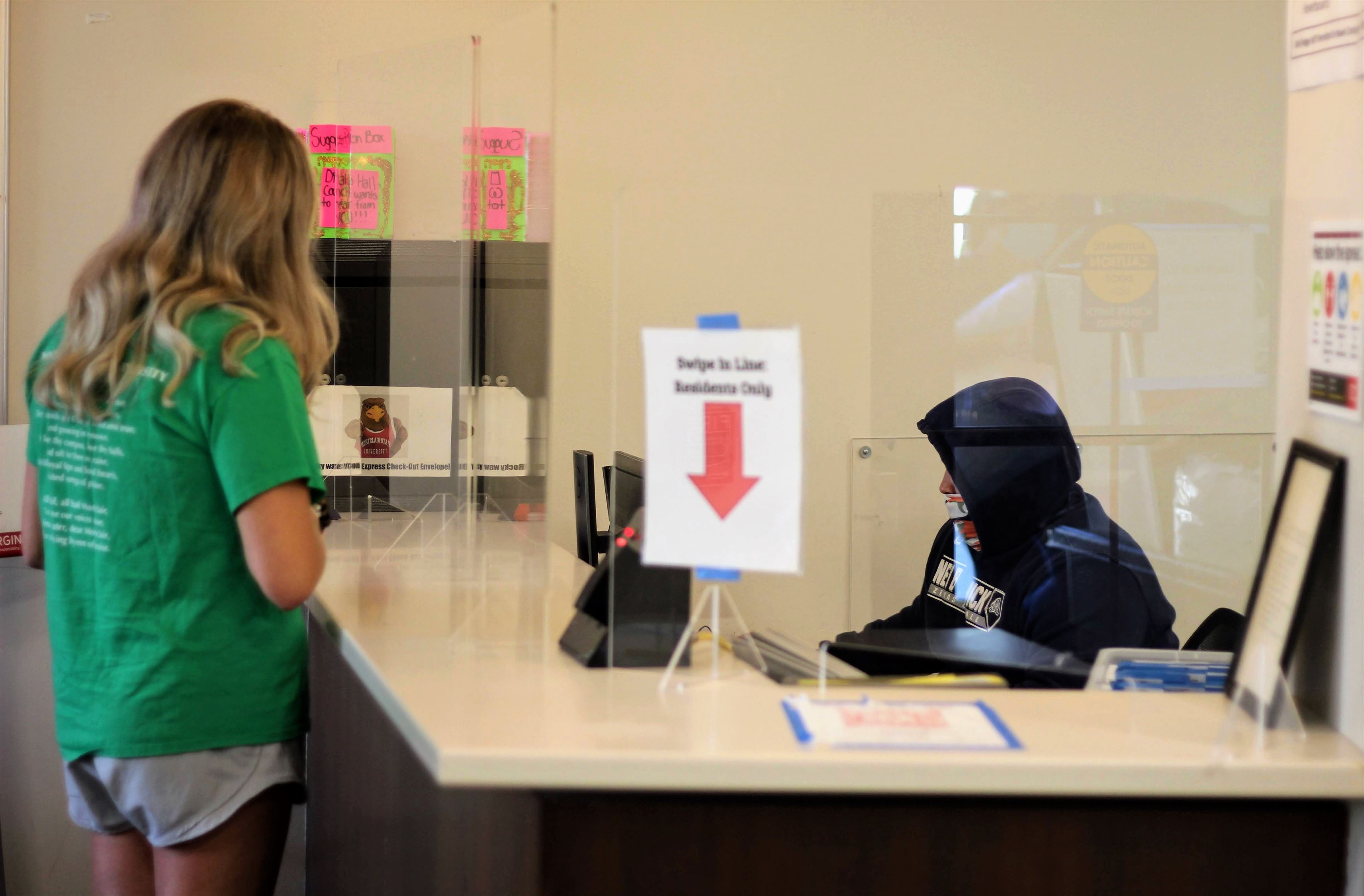
On the first floor of Dinallo Heights, plexiglass dividers separate Service Assistants from students who are checking into the dorm.
Ben Caplan | The Montclarion
In the residence halls, plexiglass barriers have been placed at each front desk and there is a no-guest policy in place. If a resident needs to quarantine and is living in a double room, the student will be provided a new living space for the duration of their quarantine. Students that must self-quarantine will be provided meals three times a day.
Both Sam’s Place and Freeman Hall are open to students for dine-in and take out through GrubHub. Plexiglass has been installed to separate diners from the food, and tables have been spaced out and removed for diners’ safety. Other food places that will be open on campus when classes start on Aug. 25 are Dunkin’ Donuts, Blanton C-Store, Jersey Mike’s, Panda Express, Grill Nation, 2Mato, Chop’d, Bistro 62 and SoDeli.
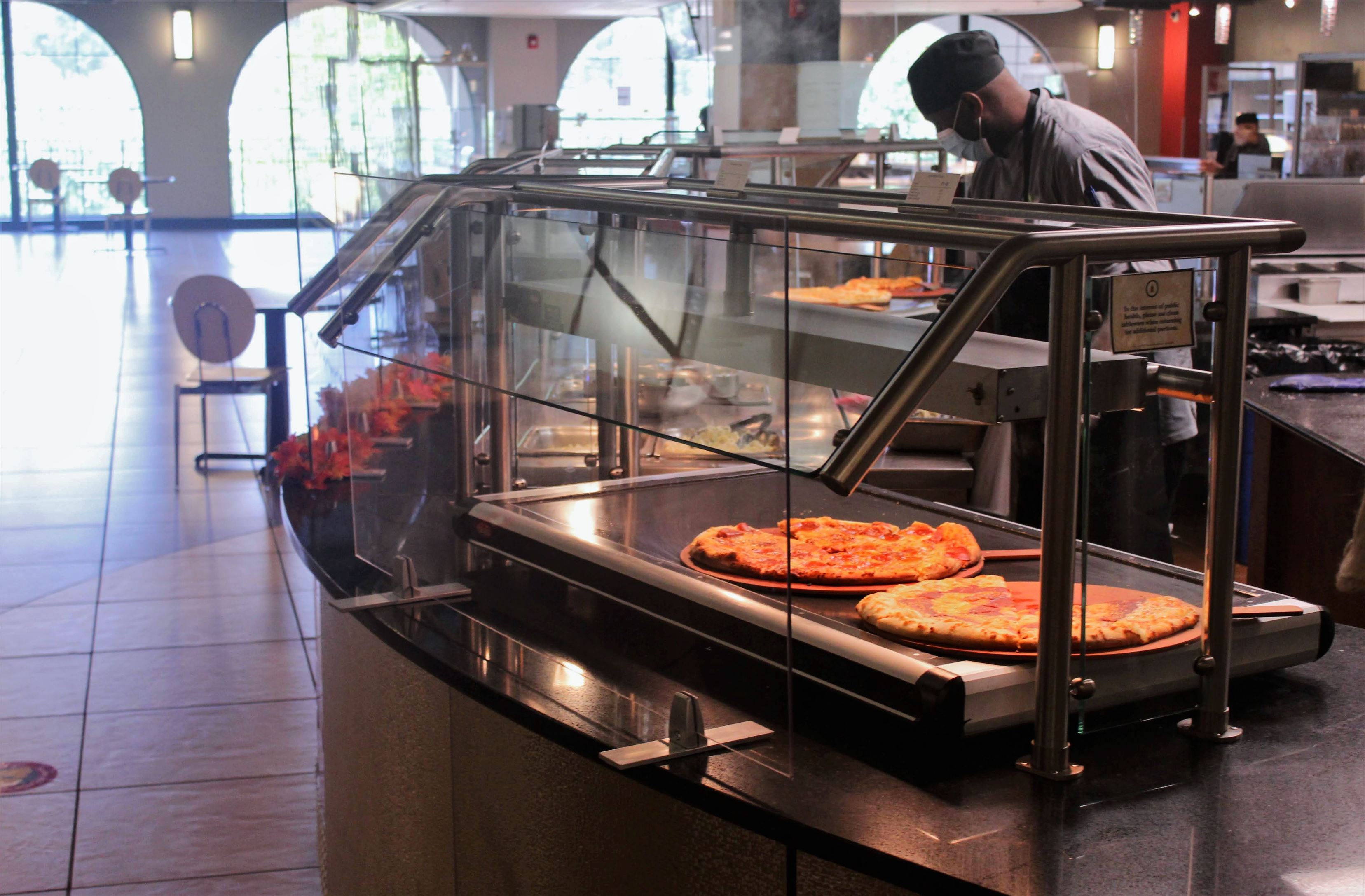
In addition to spacing out tables, Sam’s Place has placed plexiglass in front of its buffet style food stations.
Ben Caplan | The Montclarion
With campus opening to students, Mees has assured the university is prepared in case of a spike in cases.
“If [a spike in COVID-19 cases] should occur, our public health experts will immediately investigate and work closely with the local health department to determine the best course of action based on the specific circumstances,” Mees said. “If the university needs to transition to remote learning, we are prepared to do so.”
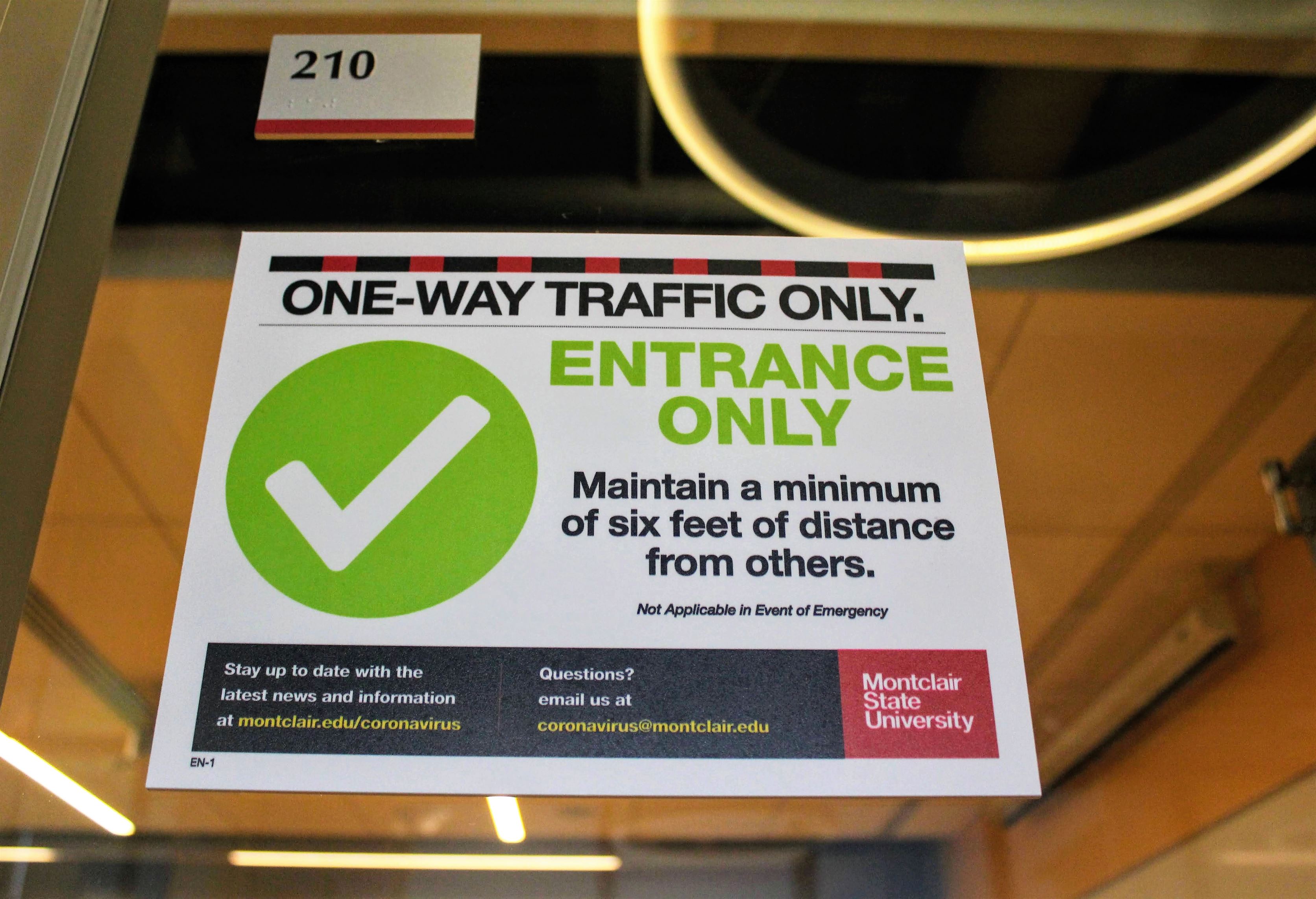
Classrooms with multiple access points have designated entrances and exits.
Ben Caplan | The Montclarion
If students or faculty see someone not following guidelines or not wearing a mask on campus, they can contact the Dean of Students office. Any student not wearing a mask on campus or following guidelines will be referred to the Director of Student Conduct and may face disciplinary action, according to Mees.
If a student forgets to bring a mask, the university is providing them at the University Health Center, the Student Center Information Desk, the Deans’ offices and the Occupational Health Department. Masks will also be available in vending machines around campus and at the bookstore.
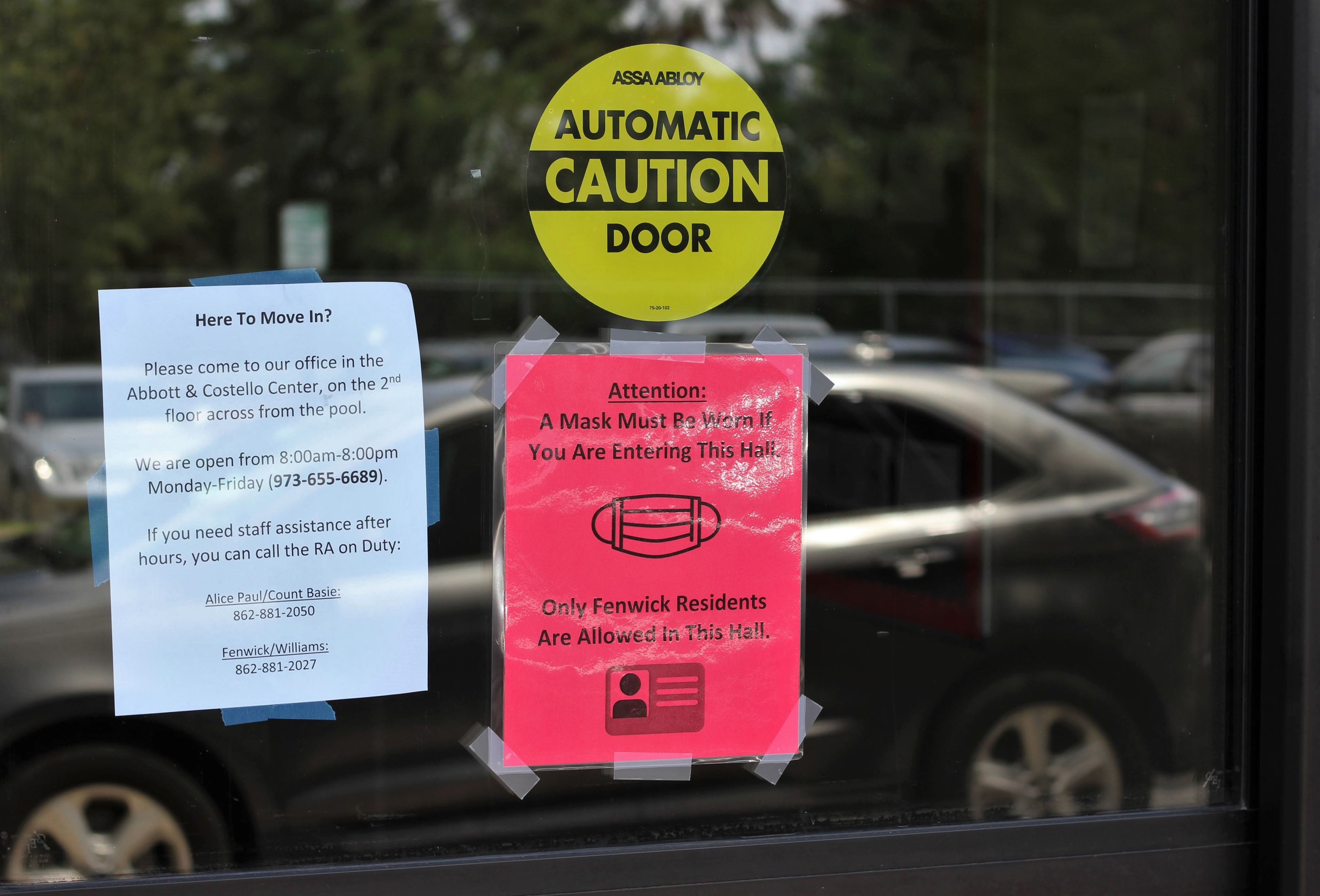
There is new signage around campus reminding students to follow all of the new rules.
Ben Caplan | The Montclarion
Although the university has taken measures for the safety of its students and faculty, some Montclair State students are still wary about the university opening its campus again.
Natalia Krassowska, a junior psychology major, feels unsafe coming back to campus to commute.
“I personally feel unsafe because regardless of the precautions [Montclair State] is taking, the amount of people coming and going on campus makes an outbreak seem inevitable,” Krassowska said.
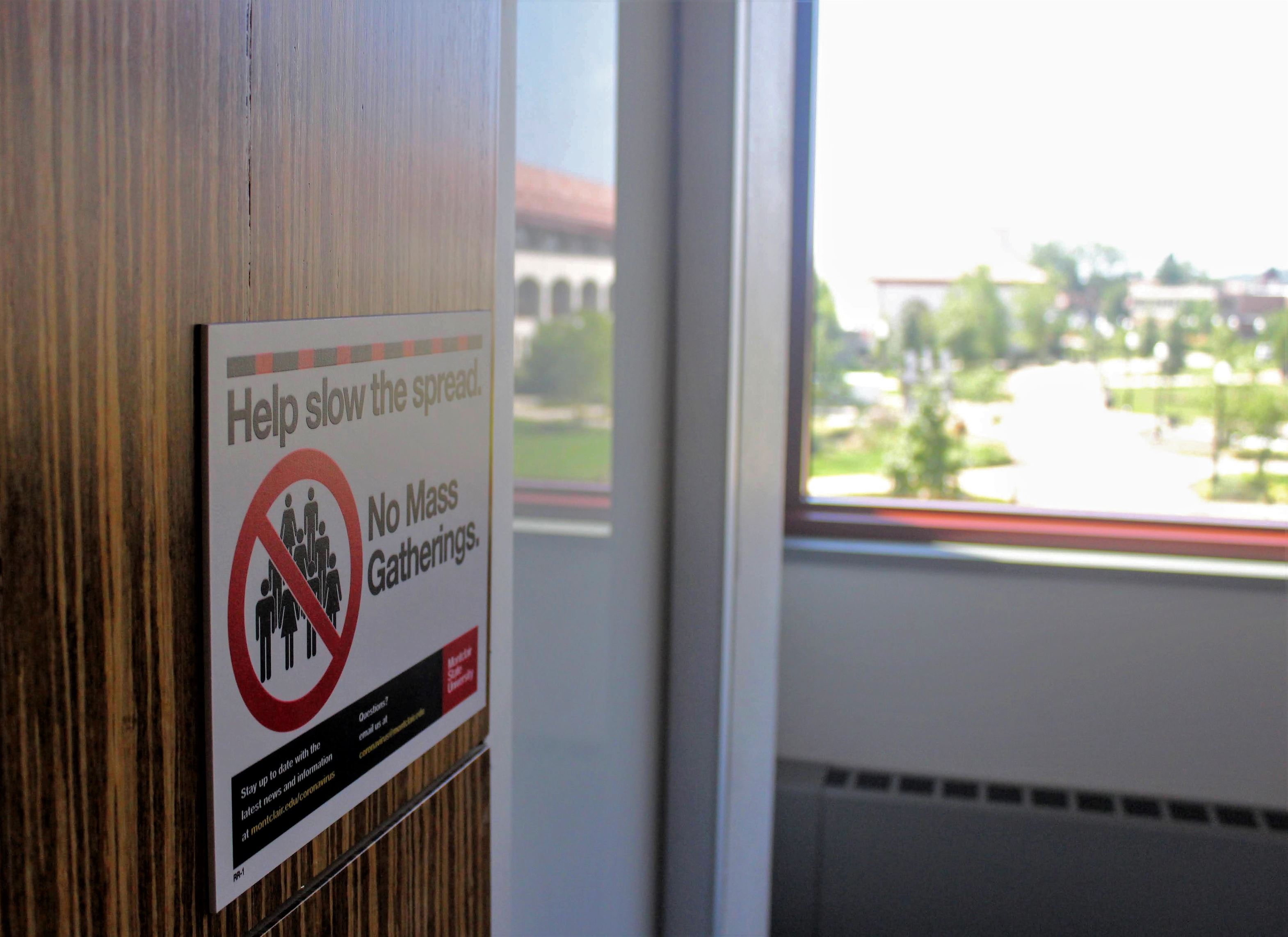
The university’s administration is taking measures to safeguard their staff and students from a COVID-19 outbreak.
Ben Caplan | The Montclarion
Katt Hoffmann, a sophomore gender, sexuality and women’s studies major, pulled out of housing in July and does not agree with the university opening campus again.
“Even with classes mostly online and precautions being taken, common areas like the library and food places are going to be breeding grounds for COVID-19,” Hoffmann said. “If there are people on campus there are going to be Greek life activities, friends hanging out together and parties happening off-campus. These precautions are performative and unhelpful unless we shut down the whole campus.”

